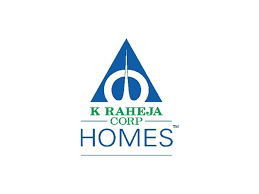

Guide to residential Properties
12th September 2024
When it comes to real estate, residential properties form a crucial part of the market. Whether you’re purchasing your first home, considering an investment, or just interested in the housing landscape, understanding the basics of residential real estate is key. The type of property you choose, the location, and market trends all play a significant role in determining a home’s value and its potential for appreciation. This guide is designed to provide you with the knowledge you need to navigate this space with confidence, especially when you’re working alongside a trusted real estate company. By grasping these core concepts, you’ll be better equipped to make informed and strategic decisions in your real estate journey.
What Are Residential Properties?
Residential properties refer to homes and dwellings specifically designed for people to live in, ranging from single-family houses to apartment buildings. Unlike commercial real estate, which caters to businesses, residential properties are all about creating comfortable living spaces for homeowners and renters.
The versatility of residential properties makes them attractive for both personal and investment purposes. Whether you’re buying your first home or planning to invest in realty to generate rental income, residential properties offer plenty of opportunities in the real estate market.
Key Types of Residential Properties
Before you dive into purchasing a home or investing in residential properties, it’s essential to understand the different types available. Here are some of the most common types:
- Single-Family Homes: These detached houses are designed for a single family and are the most common type of residential property. Typically located in suburban or rural areas, they offer privacy, space, and the potential for long-term value appreciation.
- Multi-Family Homes: These include duplexes, triplexes, and small apartment buildings. Multi-family properties are great options for investors seeking to generate rental income from multiple units on the same property.
- Condominiums (Condos): Condos are private units within a shared building or complex. Owners typically own their individual unit and share ownership of common spaces like gyms or pools. Condos are especially popular in urban settings because they offer an affordable entry point into homeownership.
- Townhouses: Townhouses are multi-story homes that share walls with neighboring units. These properties offer more space than condos while requiring less maintenance than a detached home. They are common in both suburban and urban settings.
- Apartments: Apartments are typically rented out and can be owned individually or by a landlord. Apartments, particularly in city environments, are ideal for people looking for rental options rather than ownership.
Each type of residential property has its benefits, and determining which type suits your lifestyle or investment strategy is the first step toward a successful real estate journey.
How a Real Estate Company Can Assist with Residential Property Transactions
Purchasing or selling residential properties can be a complicated process, especially for those unfamiliar with the market. This is where a trusted real estate company becomes invaluable. Whether you’re buying a home, selling a property, or looking to invest in rental properties, professional guidance from an experienced real estate agent can simplify the process.
A real estate company offers crucial services like market analysis, access to property listings, and assistance with legal and financial matters. They also guide clients through complex negotiations, ensuring buyers get the best deal possible, while sellers can attract potential buyers with the right pricing and marketing strategies.
Investors, too, benefit from the expertise of a real estate company. These professionals help identify high-potential residential properties, analyze rental market trends, and even offer property management services after the deal is closed.
Why Location is Crucial in Residential Properties
When it comes to residential properties, location is perhaps the single most important factor influencing a property’s value. Factors like proximity to schools, job centers, and amenities like parks and shopping centers can have a substantial impact on property values.
Here are some key elements that influence location value:
- School Districts: Properties in highly rated school districts are in higher demand, especially for families. These homes often command higher prices because of the premium parents place on education.
- Access to Amenities: The closer a home is to essential services such as shopping centers, healthcare facilities, and public transportation, the more desirable it becomes. Properties near such amenities tend to appreciate in value quicker than those in more remote areas.
- Safety: Low crime rates are a major factor in home-buying decisions. Properties in safe, well-maintained neighborhoods typically have higher demand, increasing their value.
- Growth and Development: Anticipating future developments like new commercial projects, transportation infrastructure, or community spaces can help investors identify up-and-coming areas where residential properties may appreciate significantly over time.
Location plays a significant role in both the buying and investing process. Homebuyers want a home where they can thrive, while investors need locations that will offer good returns on real estate investments.
Investing in Residential Properties
Residential properties present excellent opportunities for investment. Whether you’re interested in becoming a landlord, flipping homes, or holding onto a property for long-term appreciation, investing in residential properties can help grow your wealth.
- Buy-and-Hold Strategy: This involves purchasing a property and holding it over time, benefiting from both rental income and future appreciation. It’s a solid strategy for long-term investors looking for steady cash flow from realty investments.
- Flipping Homes: House flipping is when an investor buys a property, renovates it, and sells it for a profit. While this can be lucrative, it requires a sharp understanding of market trends and renovation costs to ensure profitability.
- Vacation Rentals: Platforms like Airbnb have opened up new opportunities for investors to turn homes into short-term vacation rentals. This strategy works well in tourist-heavy areas and offers the flexibility of using the property for personal vacations when it’s not rented.
- Multi-Family Units: Investing in multi-family homes like duplexes or apartment buildings allows you to rent out multiple units, providing consistent income. Multi-family properties tend to be in high demand in urban areas where renting is more common.
Choosing the right investment strategy depends on your goals, resources, and market knowledge. A real estate company can help identify the best opportunities for maximizing your returns on residential properties.
Mortgage Rates and Financing for Residential Properties
Financing is one of the most important aspects of purchasing or investing in residential properties. Mortgage rates directly influence the affordability of a property and can significantly affect your monthly payments or investment returns.
Many buyers and investors work with real estate brokers who can connect them to competitive lenders. These brokers help ensure you get the best mortgage rates and terms tailored to your financial situation, whether you’re purchasing a home or an investment property.
Investors often use financing as a way to leverage their purchasing power, allowing them to acquire multiple residential properties while keeping capital free for renovations or other investments.
Tax Benefits of Owning Residential Properties
Owning residential properties can provide substantial tax benefits, particularly for investors. Homeowners can deduct mortgage interest and property taxes, reducing their taxable income. Investors also benefit from depreciation, allowing them to write off the wear and tear on a property over time.
In addition to depreciation, expenses related to property management, maintenance, and repairs are tax-deductible. These tax advantages make residential properties one of the most efficient ways to grow wealth through real estate investment.
How to Succeed in the Residential Property Market
Succeeding in the residential property market requires a thoughtful approach and a clear understanding of your objectives. Whether you’re buying a home, selling a property, or making an investment, here are some tips to help you thrive:
- Stay Informed: Keep an eye on current market conditions, interest rates, and local real estate trends. Staying informed will help you make smart decisions about when and where to buy or sell.
- Work with Experts: A reliable real estate company can guide you through every step of the buying or selling process, ensuring you get the best deals and avoid common pitfalls.
- Think Long-Term: The value of residential properties tends to appreciate over time, so patience can pay off, particularly for investors. Property values can fluctuate in the short term, but the long-term outlook is generally positive.
Conclusion: The Potential of Residential Properties
Residential properties offer tremendous opportunities for both homeowners and investors alike. Whether you’re looking for a place to live or seeking to build an investment portfolio, understanding the basics of residential properties and working with a trusted real estate company can help you achieve your goals. With the right knowledge and strategy, you can navigate the market with confidence and position yourself for long-term success.
Register Your Interest
Recent posts


Understanding Leasehold Properties: What You Need to Know

An Ultimate Guide to Fractional Ownership Real Estate in India.

What is Khasra Number? A Complete Guide

Effective tax planning strategies for buying property in India
